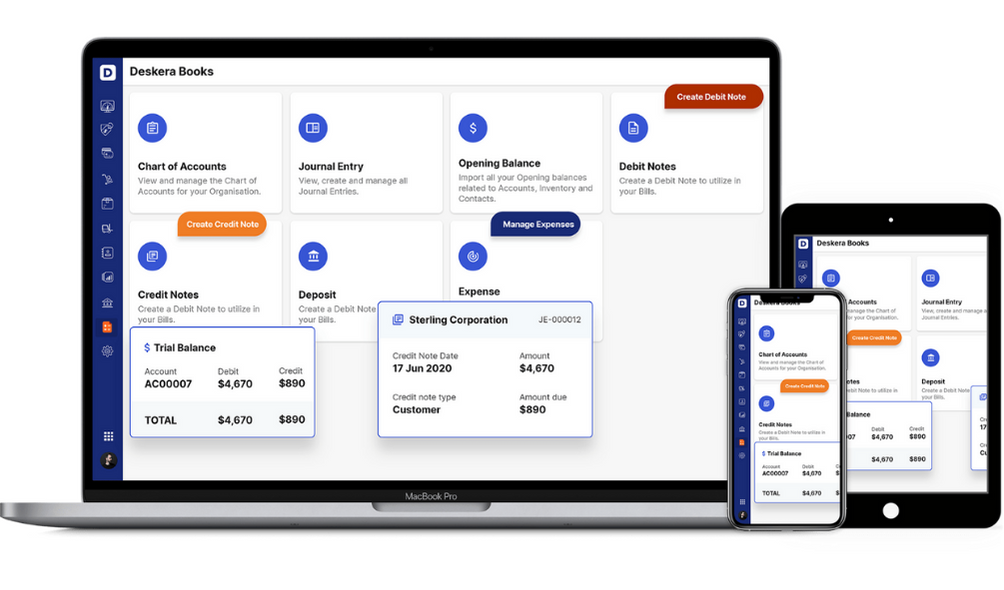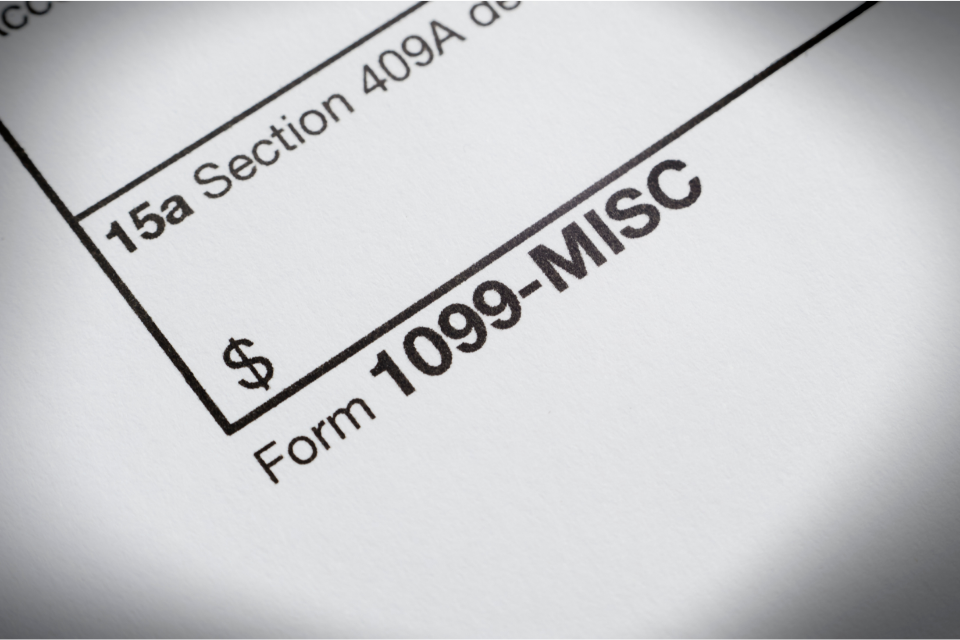All third-party network firms must submit 1099-Ks to retailers when card transactions to the retailer exceed $600 beginning January 1, 2022. Because the sales volume level has dropped from $20,000 to $600, more small companies will get Forms 1099-K in the future. As a result, many SMB managers are confused about what to do with the information.
If your company employs contract workers, you are already familiar with 1099 forms. But do you understand what the 1099-K is and how it may affect the 1099-NECs you report? In this article, let's go over the 1099-K and how it affects your previous 1099 forms.
Table of Content:
- What is a 1099-K?
- What is the use of 1099-K?
- Who qualifies for a 1099-K?
- Who issues 1099-K forms?
- Is it necessary to disclose 1099-K earnings for my taxes?
- How to Read Form 1099-K?
- Bottom Line
- Frequently Asked Questions.
- Key Takeaways.
Let's Start!
What is a 1099-K?
1099-K report transactions from an online payment service provider, such as PayPal or Venmo. Service providers must complete the 1099-K and give a copy to the IRS, the government, and the individual receiving the money. The goal is to guarantee that people record business revenue on their tax forms.
If an online service transmits at least $600 to you throughout the year, it is obligated to submit and issue a 1099-K. The $600 requirement is an accumulation, which means that even if you receive little sums of cash through, for example, Venmo year-round, you'll receive a 1099-K from Venmo if those transactions total at least $600.
A 1099-K is different from W-2, which records employee earnings.
What is the use of 1099-K?
A Form 1099-K records the net figure of credit card financial activities, digital transfers through third-party systems (such as Venmo), and other freelancing services that coordinate transfers between sender and receiver.
Form 1099-K will only record third-party money transfers that exceed the $600 limit. Companies will obtain a 1099-K form from each firm they used in the previous calendar year.
It does not apply to personal purchases, such as sending your mom money or dividing a restaurant bill with a buddy via Venmo. You can distinguish personal payments from corporate transactions on platforms like PayPal to guarantee the software accurately classify your payment.
Who qualifies for a 1099-K?
Before 2022, the transaction barrier in most of the country was $20,000, but it varied in several states. Irrespective of the number of payments, it will now be $600 throughout the deck. This modification was part of the American Rescue Plan Act, enacted in March, and went into effect on January 1, 2022, for the tax year 2022.
If a firm gets more than $600 in corporate transactions through a service like PayPal in a fiscal year, the service provider must "record and submit" a 1099-K document for that firm. These adjustments, however, will not affect the tax year 2021.
Who issues 1099-K forms?
Organizations that handle card transactions and payment service providers like PayPal or UberEats will issue the 1099-K for transactions totaling more than $600.
For example, if your business uses Venmo to accept payments from clients and has earned more than $600, Venmo will give your business a 1099-K.
There are some variations to this guideline. Certain jurisdictions demand the 1099-Ks if transactions exceed $20,000, so verify your state's legislation. Furthermore, certain merchant accounts will issue a 1099-K before reaching the $20,000 or $600 limit.
Whenever a merchant issues a form 1099-K to your business, you should receive it no later than January 31.
Is it necessary to disclose 1099-K earnings for my taxes?
There are three things to keep in mind:
· Record company income on your taxes. If you are a single owner, you must file a Schedule C with your tax form to estimate and declare your firm's earnings. Your 1099-Ks might assist you in figuring out how much money you got from clients via online services or other comparable payment methods.
· Ensure that you do not disclose your earnings twice. Assume you completed $1000 in freelancing work for a customer last year. You'll almost certainly need to declare that revenue as company income on your tax filing, but you'll have two pieces of documentation proving it.
The customer will most likely issue you a 1099-NEC after the year, indicating that it paid you $1000. However, if the customer transfers the payment via PayPal, you may receive a 1099-K from PayPal for the same $1000.
As a result, you'll need to maintain appropriate financial paperwork to ensure that you don't overstate or understate your earnings.
· Getting a 1099-K does not always imply that you owe tax on that income. First, all the payments on your 1099-K are unlikely to be business expenses. Second, you may be eligible for tax breaks that offset part of your company revenue.
How to Read Form 1099-K?
The company revenue recorded on your tax return must correspond to the numbers stated on your 1099-K.
Examine your credit card receipts and retailer reports to ensure that the figure on your 1099-K is correct. Also, double-check your records to confirm that your gross receipts are accurate.
You have to take further steps about your 1099-K. Is the taxpayer identification number of the payee correct? Does your merchant category code define your company? Is it possible that you do not own the form? Is the total number of transactions accurate?
If not, contact the PSE specified on the form to find out why you got the document. You can find the name and contact information in the lower-left corner of the page.
Request a revised form from the PSE if there is a mistake on the form. Maintain copies of any amended 1099-K you accept and any conversation with the PSE.
Other considerations:
· If you share your card processor with another user, your 1099-K will also include transactions from the other user. You must complete and provide the necessary information return for each user with whom you share a card processor. Any additional revenue attributable to the other user should be a part of the tax return.
· If you acquired or sold your company during the year, your statement may include transactions before or after you traded the firm.
· If you modified your company structure and kept using the same card processor, the figure on the 1099-K may not match the tax filing.
· If you allow your users to earn cash-back when they use their bank cards to make payments, you will include the cash-back amount on the 1099-K you earn as part of the total transactions. Generally, you will not enclose cash-back payments as a component of your total revenues on your tax filing.
Bottom Line
When reporting company revenue on your tax filing, the 1099-K is crucial. It covers a bunch of data, so double-check everything on the application. You might face problems if you don't. If you have any issues, you should inform your merchant or consult with an accountant.
Frequently Asked Questions
What is a participating payee?
A participating payee is anyone who takes a credit card as payment. It also includes an individual who takes payments made by an online payment provider on behalf of the buyer or consumer.
When must Forms 1099-K be filed?
The IRS requires record disclosure for credit card and online network payments on the last day of February. If you file online, you must do so by April in the year after the payment.
What does the total amount of reportable payment entail?
The total unadjusted dollar figure of cumulative money transfers for every contributing payer is the total amount of reportable transactions.
What will the IRS do with the information on 1099-K?
IRS uses the Form 1099-K information to create solutions for taxpayer awareness and develop new inspection and data collection methods.
How can Deskera Help You?
Deskera Books is an online accounting, invoicing, and inventory management software that is designed to make your life easy. A one-stop solution, it caters to all your business needs, from creating invoices and tracking expenses to viewing all your financial documents whenever you need them.

Key Takeaways
· All third-party network firms must submit 1099-Ks to retailers when card transactions to the retailer exceed $600 beginning January 1, 2022.
· 1099-K report transactions from an online payment service provider, such as PayPal or Venmo.
· Service providers must complete the 1099-K and give a copy to the IRS, the government, and the individual receiving the money.
· The goal is to guarantee that people record business revenue on their tax forms.
· Organizations that handle card transactions and payment service providers like PayPal or UberEats will issue the 1099-K for transactions totaling more than $600.
· If you are filling out a 1099-K, you should remember these three points:
o Record company income on your taxes.
o Ensure that you do not disclose your earnings twice.
o Getting a 1099-K does not always imply that you owe tax on that income.
· The company revenue recorded on your tax return must correspond to the numbers stated on your 1099-K.
· If you share your card processor with another user, your 1099-K will also include transactions from the other user.
· If you acquired or sold your company during the year, your statement will contain transactions before or after you traded the firm.
· If you modified your company structure and kept using the same card processor, the figure on the 1099-K may not match the tax filing.
· If you allow your users to earn cash-back when they use their bank cards to make payments, you will include the cash-back amount on the 1099-K you earn as part of the total transactions.
· You should not disclose cash-back payments as a component of your total revenues on your tax filing
Related Articles












